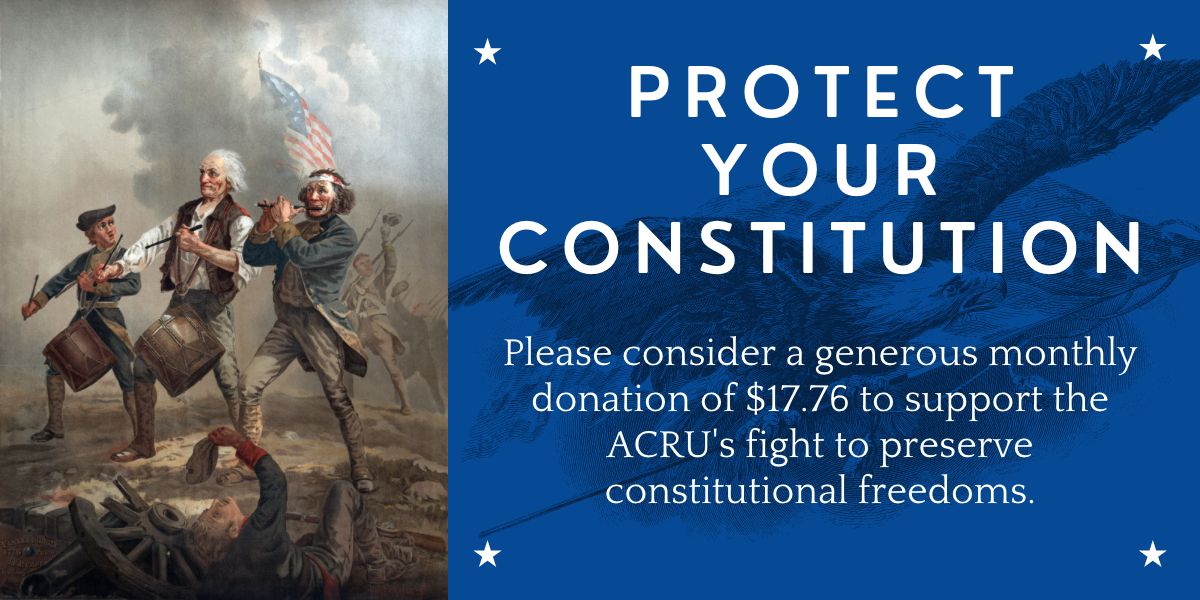
Ken Blackwell and Ken Klukowski: Why the ObamaCare Tax Penalty Is Unconstitutional
ACRU Staff
July 22, 2010
ACRU Senior Fellow Ken Blackwell and ACRU Senior Legal Analyst Ken Klukowski wrote this column appearing July 22, 2010, on The Wall Street Journal.
The Justice Department announced last week that it would defend the new federal health-insurance mandate as an exercise of Congress’s “power to lay and collect taxes,” even though Barack Obama had insisted before the bill’s passage that it was “absolutely not a tax increase.” The truth is the mandate is not a tax—and if it were it would be unconstitutional.
A tax is when the government takes money from individuals, puts it in the Treasury, and plans to spend it. With the health-insurance mandate, the government is not taking money from private individuals; rather, it is commanding them to give their money to another private entity, not to the Treasury. If individuals don’t obey the mandate, they pay a penalty to the Treasury. But penalties aren’t taxes. The mandate is legally separate from the penalty.
Even if the Justice Department were to get the mandate considered a tax, it would be an unconstitutional one. Unlike states, the federal government has limited jurisdiction. Under the 10th Amendment, the federal government has only those powers enumerated by the Constitution, and all other powers are reserved to the people or the states. Every federal action must be authorized by a constitutional provision. If there is no such provision, then the action is unconstitutional. No provision of the Constitution authorizes the federal government to command people to buy insurance.
The Taxing and Spending Clause in Article I of the Constitution gives the federal government broad power to tax the American people. But that power is not unlimited.
The Constitution originally allowed only three types of taxes. The first was a duty, which is a tax on imports. The second was an excise tax, which is a tax for the privilege of doing something, such as buying alcohol or holding a professional license to practice law. Both duties and excise taxes are indirect taxes that can be passed on to consumers.
The third type of tax was a direct tax, which cannot be passed on to someone else. The only type of direct tax permitted by the Constitution was a “capitation tax,” or head tax, which every person could be required to pay. The Constitution required that any capitation tax be apportioned, meaning that every person in a given state had to pay the same amount. New Yorkers might have to pay $600 per year while Virginians only pay $500, but every person within each state must pay equally.
When Congress created an income tax in the late 1800s, the Supreme Court struck it down on the grounds that it was a direct tax but not apportioned. That 1895 decision, Pollock v. Farmers’ Loan & Trust, rejected the idea that Congress had some generic power to tax outside the three categories laid out in the Constitution.
That’s why, in 1913, the 16th Amendment to the Constitution was required in order to institute a national income tax. Since then, a tax on income has been the fourth and final type that the federal government can impose.
The individual health-insurance mandate fits into none of these four categories and is therefore not constitutionally justified as a tax.
But the Constitution is only as good as the Supreme Court interpreting it. The Senate’s imminent vote on Elena Kagan’s nomination is a poignant reminder that we need a court that faithfully upholds the Constitution. Such a court would strike down ObamaCare.
JOIN ACRU's PATRIOT CLUB


